
Mott the Hoople were an English rock band formed in Hereford, Herefordshire in 1969. Originally named the Doc Thomas Group, the band changed their name after signing with Island Records in 1969. The band released albums at the beginning of the 1970s but failed to find any success. On the verge of breaking up, the band were encouraged by David Bowie to stay together. Bowie wrote their glam-style signature song "All the Young Dudes" for them, which became their first hit in 1972. Bowie subsequently produced their album of the same name, which added to their success.

KC and the Sunshine Band is an American disco and funk band that was founded in 1973 in Hialeah, Florida. Their best-known songs include the hits "Get Down Tonight", "That's the Way ", "(Shake, Shake, Shake) Shake Your Booty", "I'm Your Boogie Man", "Keep It Comin' Love", "Boogie Shoes", "Please Don't Go", and "Give It Up". The band took its name from lead vocalist Harry Wayne Casey's last name ('KC') and the 'Sunshine Band' from KC's home state of Florida, the Sunshine State. The group had five number-one singles on the Billboard Hot 100 chart in the 1970s.
Silver Convention were a German Euro disco recording act of the 1970s. The group was originally named Silver Bird Convention or Silver Bird.

Mott is the sixth studio album by British rock band Mott the Hoople. It peaked at No. 7 in the UK Albums Chart. It is the last album to feature guitarist Mick Ralphs, and the first without organist Verden Allen; because of Allen's departure, most organ and other keyboard parts are played by Ralphs.
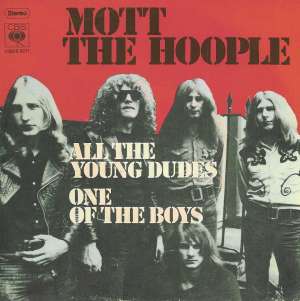
"All the Young Dudes" is a song written by English singer-songwriter David Bowie, originally recorded and released as a single by the English rock band Mott the Hoople in 1972 by Columbia Records. Bowie produced the song, which he had given to the band after they rejected his "Suffragette City". Bowie would subsequently record the song himself. Regarded as an anthem of glam rock, the song has received acclaim and was a commercial success. In 2021, Rolling Stone ranked "All the Young Dudes" number 166 in its list of the 500 Greatest Songs of All Time. It is also one of the Rock and Roll Hall of Fame's 500 Songs that Shaped Rock and Roll.

"Boogie Woogie Bugle Boy" is a World War II jump blues song written by Don Raye and Hughie Prince which was introduced by The Andrews Sisters in the Abbott and Costello comedy film, Buck Privates (1941). The Andrews Sisters' Decca recording reached number six on the U.S. pop singles chart in the spring of 1941 when the film was in release. The song is ranked No. 6 on Songs of the Century. Bette Midler's 1972 recording of the song also reached the top ten on the U.S. Billboard Hot 100.

Wild and Peaceful is the fourth studio album, and sixth album of new material released by the funk band Kool & the Gang, and is their commercial breakthrough album. It was released in 1973 and was hugely successful on the Billboard R&B chart, reaching No. 6 and charting for 36 weeks. It also reached No. 33 on the Pop charts, making it the band's first entry into that chart's Top 40. The album spawned the band's first three Top 10 singles. "Funky Stuff" reached No. 5 R&B/No. 29 Pop. The hugely popular track "Jungle Boogie" soared to No. 2 R&B and No. 4 on the Billboard Hot 100, and "Hollywood Swinging" topped the Billboard Hot Soul Singles in June 1974 while reaching No. 6 Pop. The latter two singles both sold over a million copies and were certified Gold by the RIAA. The album itself was also certified Gold.
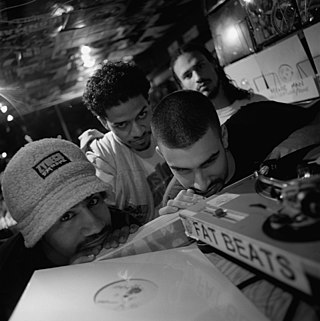
Arsonists are an underground hip hop group. Their album, As the World Burns (1999), reached No. 78 on the US Billboard Top R&B/Hip-Hop Albums; its single, "Pyromaniax", reached No. 43 on the US Billboard Hot Rap Singles chart.

"La Grange" is a song by the American rock group ZZ Top, from their 1973 album Tres Hombres. One of ZZ Top's most successful songs, it was released as a single in 1973 and received extensive radio play, rising to No. 41 on the Billboard Hot 100 in June 1974. The song’s title and lyrics refer to a brothel on the outskirts of La Grange, Fayette County, Texas. The brothel is also the subject of the Broadway play and film The Best Little Whorehouse in Texas.
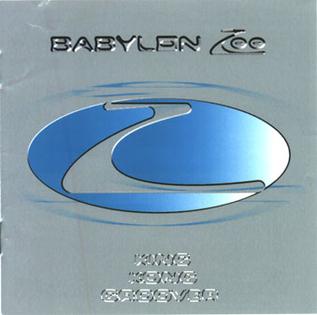
King Kong Groover is the second and final album by Babylon Zoo, released on 26 February 1999. It met with negative reviews and was a commercial flop. The singles from the album were "All the Money's Gone", which peaked at #46 on the UK Singles Chart, and a cover of Mott the Hoople's "Honaloochie Boogie", which was issued as a promotional single in France.

Boogie with Canned Heat is the second studio album by American blues and rock band Canned Heat. Released in 1968, it contains mostly original material, unlike their debut album. It was the band's most commercially successful album, reaching number 16 in the US and number 5 in the UK.

Shades of Ian Hunter: The Ballad of Ian Hunter and Mott the Hoople is a compilation album by Ian Hunter, consisting of tracks by Hunter's previous band Mott the Hoople, and solo Hunter tracks as well. It was released in 1979 as a double-LP.
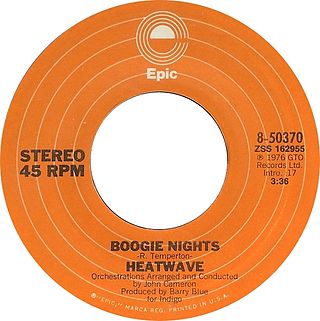
"Boogie Nights" is a 1977 single by international funk-disco group Heatwave. It was written by keyboardist Rod Temperton and was included on Heatwave's debut album, Too Hot to Handle. Harpist Carla Skanger played harp and American actor and singer Clarke Peters performed backing vocals on the recording.

"Blame It on the Boogie" is a song released in 1978 by English singer-songwriter Mick Jackson. It has been covered by the Jacksons, Clock and Luis Miguel.
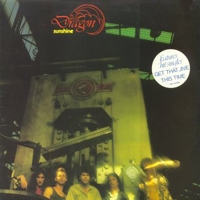
Sunshine is the third studio album by New Zealand rock band Dragon, it was their first album after they had relocated to Sydney, Australia in May 1975. Sunshine was released in February 1977 by CBS Records and peaked at #24 on the Australian national albums charts. The album was certified gold. The single "This Time" had been released in late June 1976, which peaked at #26 on the Australian national singles charts. The second single "Get that Jive" was the best charting peaking at #13 and the third single "Sunshine" reached #36. The album had US and International releases in 1978 on Portrait Records, with "This Time" called "In the Right Direction" and an alternative cover used.

"Billion Dollar Babies" is a popular 1973 single by the rock group Alice Cooper, the title track taken from the album Billion Dollar Babies. It was released in July 1973, a few months after the album had been released. The track is a duet between Alice Cooper and Scottish musician Donovan, who provides the falsetto and high harmony vocals. BMI lists the composers of "Billion Dollar Babies" as Alice Cooper, Michael Bruce and Reggie Vinson. Some sources list the composers as Cooper, Bruce, drummer Neal Smith, and "R. Reggie", the latter being an allusion to Vinson's nickname "Rockin' Reggie Vinson".

"Boogie Child" is the third hit single from the Bee Gees' 1976 platinum album Children of the World, released in the US in early 1977. The song peaked at no. 12 on the Billboard Hot 100 as an A-side and was then used as the B-side of the single "Children of the World" in the UK. It was the last song recorded by the Bee Gees for their album Children of the World.
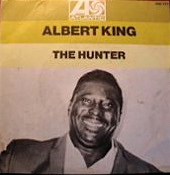
"The Hunter" is a blues song first recorded by Albert King in 1967 for his landmark album Born Under a Bad Sign. It was written by Stax Records' house band, Booker T. and the MGs, and Carl Wells. Along with "Born Under a Bad Sign" and "Crosscut Saw", "The Hunter" is one of King's best-known and most-recorded songs. In 1969, Ike & Tina Turner's version reached the singles charts in the U.S.
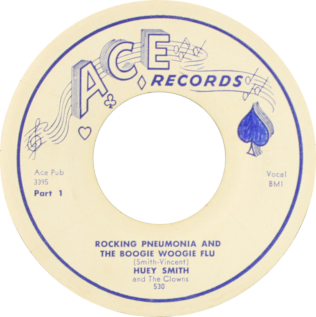
"Rockin' Pneumonia and the Boogie Woogie Flu" is a song written and originally recorded in 1957 by Huey 'Piano' Smith, who scored a minor Billboard hit with it, peaking at No. 52 on the Top 100 chart, and a more successful No. 5 on the Most Played R&B by Jockeys chart.
Shooter, originally known as Greaseball Boogie Band, was a Canadian rock music group active in the early 1970s. They were most noted for receiving a Juno Award nomination for Most Promising New Group at the Juno Awards of 1975.


















